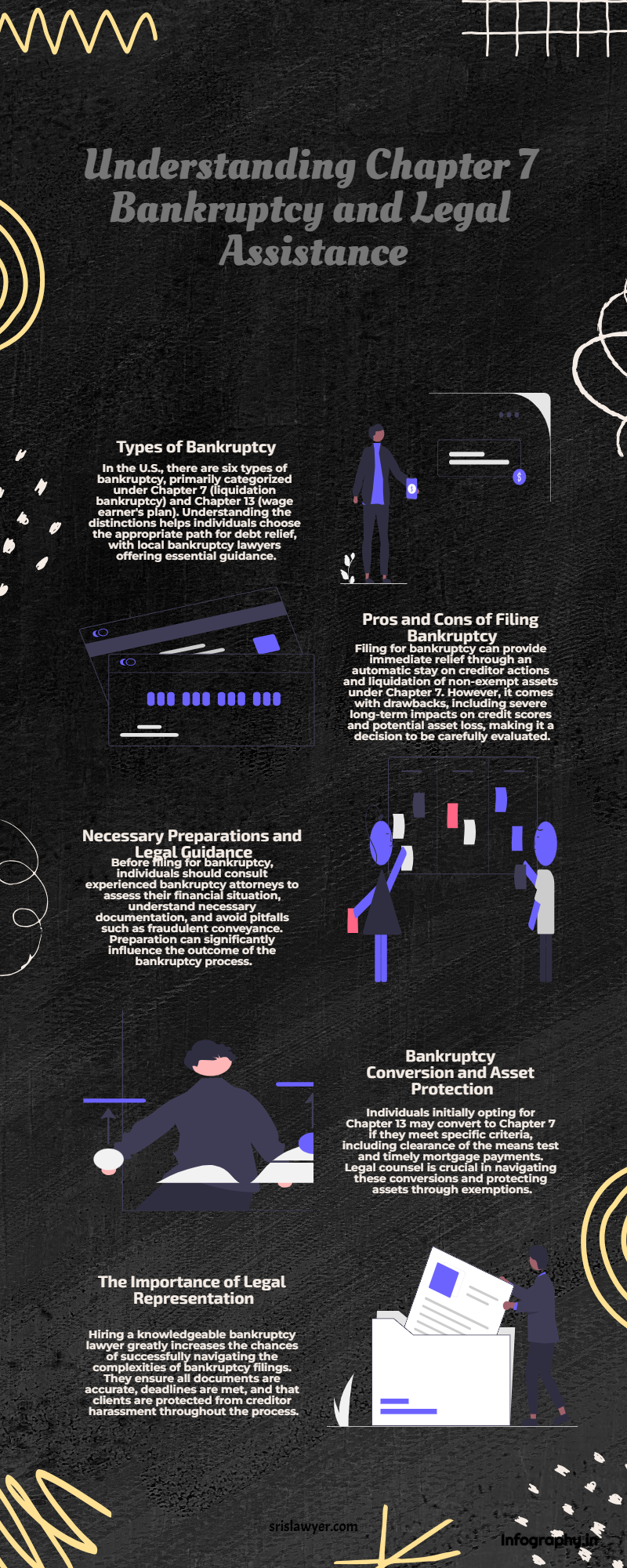Filing for bankruptcy is a significant decision that requires careful planning and preparation. If you're searching for a "Bankcruptcy Lawyer Near Me," it’s essential to gather the right documents before your initial consultation. Being organized not only saves time but also allows your attorney to evaluate your financial situation accurately and recommend the best course of action. Here’s a comprehensive guide to the documents you should prepare before meeting with a bankruptcy lawyer.
1. Identification and Personal Information
Your attorney will need proof of your identity and personal details to begin your case. Prepare the following:
- Government-issued photo ID, such as a driver’s license or passport.
- Social Security card or a recent document displaying your Social Security number.
- Recent utility bill or lease agreement to confirm your address.
2. Income Information
Your income details help your lawyer determine which type of bankruptcy—Chapter 7, Chapter 11, or Chapter 13—is suitable for your situation. Gather:
- Pay stubs for the last six months.
- Tax returns for the past two to three years.
- Documentation of other income sources, such as rental income, Social Security, or unemployment benefits.
- Bank statements from all accounts for the past three to six months.
3. Expense Records
Understanding your monthly expenses helps build a complete financial picture. Prepare a detailed list of:
- Rent or mortgage payments.
- Utility bills.
- Insurance premiums.
- Groceries, transportation, and childcare costs.
- Any other recurring expenses.
4. Debts and Liabilities
Your lawyer will need a complete list of your debts to determine which ones can be discharged or restructured. Include:
- Recent statements from credit cards and personal loans.
- Medical bills.
- Notices of collection or delinquent accounts.
- Student loan statements.
- Mortgage and car loan documents.
5. Assets and Property Information
It’s crucial to document your assets so your attorney can evaluate what is protected under bankruptcy exemptions. Bring:
- Deeds or titles for real estate and vehicles.
- Retirement account statements.
- Life insurance policies with cash value.
- Appraisals or valuations of personal property, such as jewelry, electronics, or artwork.
6. Legal and Financial History
If you’ve been involved in previous legal or financial matters, your lawyer needs to know. Prepare:
- Copies of any prior bankruptcy filings.
- Divorce decrees or child support orders.
- Lawsuits, judgments, or garnishments.
7. Business Records (if applicable)
If you own a business, you’ll need to provide additional documentation:
- Profit and loss statements.
- Business tax returns.
- A list of business debts and assets.
- Bank statements for business accounts.
8. Miscellaneous Documents
Other documents that may be relevant include:
- Recent credit reports for a full list of creditors.
- Notices or communications from the IRS.
- Any contracts or agreements tied to financial obligations.
Why Preparation Matters
When you meet with a "Bankruptcy Lawyer Near Me," having these documents ready ensures a productive consultation. Your lawyer will use this information to assess your eligibility for bankruptcy, determine which type of filing is appropriate, and develop a strategy tailored to your needs.
Conclusion
Preparing the right documents before meeting with a bankruptcy lawyer is a crucial first step toward financial recovery. By gathering identification, income records, expenses, debts, assets, and legal history, you can provide your attorney with a clear picture of your financial situation. This preparation not only saves time but also positions you for a smoother and more effective bankruptcy process.





Comments